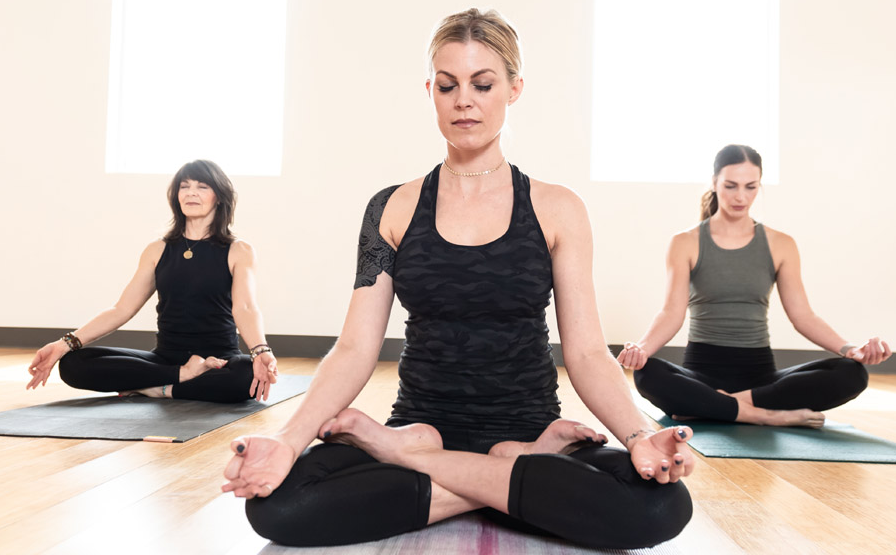
In 1988, I attended my second 10-day silent Vipassana (Insight) Meditation retreat. The retreat began on December 26, 1988 and ended on January 6, 1989. One of my clearest memories of that retreat was a revelation that took place on New Year’s Eve. In my days as a party girl at Indiana University and in the ensuing years, like most people I considered New Year’s Eve to be a great excuse to find a party or go to a bar and get smashed. That’s just what my friends and I, along with most people my age, did every single year.
When New Year’s Eve rolled around in 1988, I remember being amused that I was sitting in silence atop a snow-covered mountain. There was no alcohol, no silver ball, no “Auld Lang Syne,” no potential hangover—not the slightest mention of the usually momentous day. I mused about how most of the world was going about their New Year’s rituals without me, and getting along just fine. I thought about how most of the world would rather do just about anything than sit atop a mountain in silence any day of the year, but especially on the traditional blowout party day.
Meditation Ain’t Easy
And with good reason. Meditation is damn hard. Prior to my first retreat the year before, I’d never experienced anything in my 32 years on the planet that challenged me as much as sitting silently—or trying to—did. First, there was unexpected physical pain pretty much everywhere in my body. Then there was the insane prattle in my mind, a jumble of sad stories from the past, nervous worries or grand plans for the future, near-continuous earworms and an ever-present desire to be anywhere but where I was—in that aching, burning body on that seemingly unforgiving meditation bench with nothing to distract me from my raving mind.
Until I experienced my first moment of pure mindfulness, the exquisite, and surprising, experience of being fully present with the process of reaching for and turning a doorknob, I had no plans to subject myself to that kind of torture again. But my doorknob experience changed everything. In one simple, pedestrian act, my life changed and has never been the same.
This doesn’t mean that meditation suddenly became easy. It didn’t. It’s still a challenge, even after more than 30 years. But in those decades, I’ve learned that the only way to transcend the neuroses, habit patterns and limiting beliefs that make our minds a living hell and keep us imprisoned is to shine the light of awareness on them, accept them as something that we’ve chosen to define ourselves with and begin the painstaking, long-term process of rewiring our habits.
The difference between then and now is that back then, my unpleasant patterns seemed like a monstrous behemoth I had to slay. These days I see them and greet them as Thich Nhat Hanh suggests: “Hello, old friend.” It was a long, hard, humbling slog to get to this place.
Practicing Yoga—Swimming Up a Waterfall
All this is to explain why practicing yoga and meditation has traditionally been considered to be an expression of swimming against the current of the mainstream. One of the teachers on a silent retreat at Spirit Rock Meditation Center said, “Practicing meditation isn’t just like swimming upstream; it’s like swimming up a waterfall.”
Because of this I understand why the current paradigm for practicing yoga looks a whole lot like mainstream Western culture, at least for now. Traditional yoga demands that we slow down and look inside, and no matter who we are, there’s going to be something in there that’s not so palatable to accept. So we’ve sped yoga up, added music—and even beer and baby goats—and shifted the focus to accomplishing poses rather than letting the poses gently and gradually dismantle our brittle shells and uncover what’s inside yearning to be set free.
I like to think that this is all part of our longer-term evolutionary opportunity to move inward. Yoga may have had to meet us where we are before we can go where it wants to take us. I harbor no illusions that even if practicing yoga returns to its quiet roots that it will suddenly become an easy path. Practicing yoga and meditation is challenging no matter how we interpret it.
Practicing Yoga Doesn’t Mean Becoming a Monk
For the record, there’s a lovely New Year’s party I attended every year for about 10 years, until the hosts decided to retire it a couple years ago. And I love music. While I don’t listen to it when I practice yoga or meditation—unless of course there’s an earworm that won’t quit—I love sitting in the middle of an orchestra being carried away by the music.
But my greatest pleasure is in silence, in those rare moments when the stream of my mind comes to rest in a clear, forest pool, when I’m no longer swimming, but inhabiting my heart’s true home.

In my world it’s not the music or the i phones, but the constant questions and demands (?) of people around me. My quiet is mostly just going out in my backyard with my dogs and making them happy. Even though they bark and talk , it is still quiet in my mind. I don’t think about anything anyone needs, just making my dogs happy. My body is telling me I need to do more of that. Thanks for all your posts. I really enjoy them and they are food for thought. Claudia